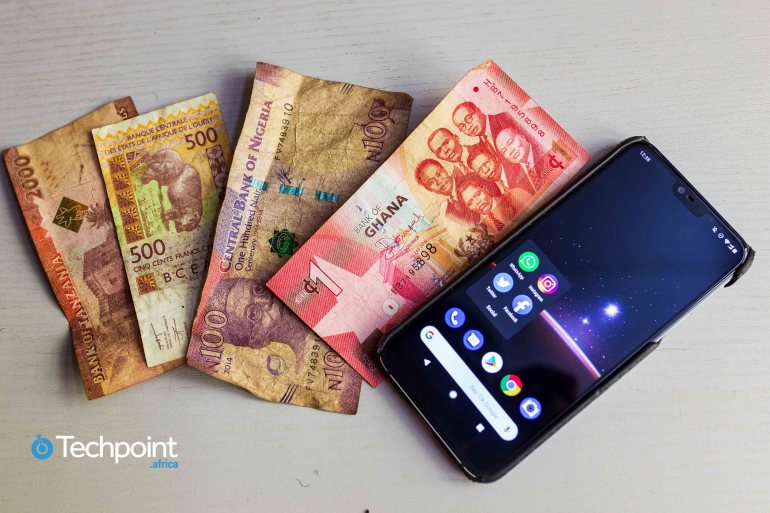With effect from July 15, 2020, the Nigerian Communications Commission (NCC) requires six major telecom companies operating in Nigeria to submit their yearly financial reports. The telecom regulator says it is doing this to improve transparency and boost competition in the telecom sector.
On Tuesday, July 21, 2020, Dr Ikechukwu Adinde, NCC’s Director of Public Affairs, disclosed this in a statement which revealed that these telcos are mandated to submit their financial statements within seven months after the end of their financial year.
The NCC states that the new policy is based on the Accounting Separation Framework (ASF) for the telecom industry. It supposedly provides telcos with a comprehensive set of policies and guidelines for generating detailed regulatory financial statements.
The policy document, tagged Determination on the Implementation of an Accounting Separation Framework for the Nigerian Telecoms Industry, was developed through widespread consultation with stakeholders in 2015. The NCC says it has comprehensively reviewed it with the input of telecom operators.
The six telcos that have been mandated to submit their financials are Airtel Africa, MTN Nigeria, Emerging Markets Telecommunications Services Limited (9mobile), Globacom Nigeria, Main One Cable Company Limited, and IHS Nigeria.
As the NCC explains, this is earmarked to go on for two years. Upon review, other telcos might be mandated to join. Though not required to do so at the moment, other telcos can also file their financial statements.
Why is the NCC implementing the ASF?
Nigeria’s telecom regulator is making these changes for four main reasons:
- To facilitate investments and entry into the country’s telecom market
- To protect consumers against unfair practices in matters like tariffs, charges and several others
- To promote availability and quality of communications licences, equipment, and facilities
- To promote fair competition and prevent the misuse of market power or anti-competitive and unfair practices
On the surface, these milestones coincide with current narratives surrounding the Nigerian telecom sector.
Since the entry of 9mobile (formerly Etisalat) into the Nigerian market in 2008, it has joined MTN, Glo, and Airtel in dominating the telecom space. No new entry has been able to join the ranks.
These telcos, alongside MainOne and IHS, are the major infrastructure providers in the country.
A closer look at the Framework revealed that only telecom companies with an annual turnover of at least ₦5 billion ($12.9 million) were given the mandate. This implies that the listed companies are the only telcos that met the turnover requirement.
In June 2020, French telecom giant, Orange telecom expressed interest in the Nigerian market, but it is not clear what form its entry will take.
In the past year alone, Nigeria has faced challenges with infrastructure, quality, and availability of service, and increases in consumer complaints about high call and data tariffs. Despite the seeming presence of several telcos and Internet service providers, the Internet market appears more consolidated than competitive.
Though the telecom regulator wants to address these problems, the implementation of the ASF remains a divisive practice that has both benefits and costs.
What will this policy change for telcos?
Essentially, the ASF framework will drastically change how Nigerian telcos and ISPs present their financial reports.
According to the policy document, even if a telco prepares its document to meet the International Financial Reporting Standards (IFRS), it will still have to prepare a separate report for the NCC.
With the new policy, the NCC wants to analyse the performance and competitiveness of each market (unit) within the industry. Telcos would then be required to prepare separate financial accounts for each unit or subsidiary within the company, instead of lumping them together.
For instance, in MTN’s report, it will have to prepare separate documents for its international submarine cable, base transceiver stations (telecom masts), Internet services, or any other service it is licenced to offer in Nigeria.
According to Umar Danbatta, Executive Vice-Chairman for the NCC, the implementation of the new framework will promote accountability and transparency, and prevent anti-competitive practices in Nigeria.
It will also ensure that charges for telecom services are made on a cost-based basis and are non-discriminatory.
Other countries
Nigeria is not alone in wanting to break market dominance and boost competition in its telecom sector, but few have approached it through the ASF.
Ghana, for example, declared MTN Ghana as the dominant market power and moved to implement policies like price floors and ceilings. But its effectiveness cannot be fully attested to
In Kenya, the Communications Authority has also tried breaking up Safaricom’s dominance in the past, but with little success.
Though the NCC cited that the ASF was in use around the globe, its success cannot always be guaranteed.
In the early 90s, countries like Australia and the UK proposed the ASF to break up the market dominance of telecom providers in their countries, but it met with divisive responses.
The European Research Group also proposed the ASF, highlighting some of its benefits to the sector. However, Deutsche Telekom, German telecom giants, countered, saying it was ill-suited to a dynamic and diversified market environment.
According to Deutsche Telekom’s statement, the cost of implementing these strategies will likely outweigh any possible benefit that the ASF might bring.
How could this affect you?
The new ASF framework will change practices in the telecom sector. In an ideal world, it could lead to more competition and possibly improve the quality of network services, and resolve issues of rapid call and data depletion.
For instance, the NCC wants to stem any instance of cross-subsidisation and margin squeezes. These are technical business terms, but here’s what they mean.
Telcos, electric companies, or others cross-subsidise when they increase the cost of their services for a group of people, to beat down the cost for others.
If this is checked, it could lead to better and fairer pricing for calls and data service across the country.
Despite these perceived benefits, a whole lot more needs to be resolved before they become a reality.











